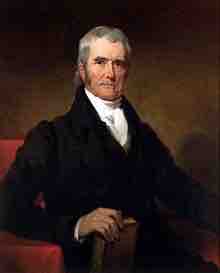Introduction
Almost all presidential powers rely on what Congress does or does not do. Presidential executive orders implement the law, but Congress can overrule such orders by changing the law. And many presidential powers are delegated powers that Congress has accorded presidents to exercise on its behalf and that it can cut back or rescind.
Delegated Powers
The delegated powers, also called enumerated powers, are a list of items found in Article I, Section 8 of the U.S. Constitution that set forth the authoritative capacity of Congress. In summary, Congress may exercise the powers that the Constitution grants it, subject to explicit restrictions in the Bill of Rights and other protections in the Constitution. The Tenth Amendment states that "The powers not delegated to the United States by the Constitution, nor prohibited by it to the States, are reserved to the States respectively, or to the people. " Historically, Congress and the Supreme Court of the United States have broadly interpreted these provisions.
The list of enumerated powers includes the following: "The Congress shall have Power To lay and collect Taxes, Duties, Imposts and Excises, to pay the Debts and provide for the common Defence and general Welfare of the United States; but all Duties, Imposts and Excises shall be uniform throughout the United States;" "To borrow Money on the credit of the United States;" "to declare War, grant Letters of Marque and Reprisal, and make Rules concerning Captures on Land and Water;" and "to make all Laws which shall be necessary and proper for carrying into Execution the foregoing Powers, and all other Powers vested by this Constitution in the Government of the United States, or in any Department or Officer thereof."
Political Interpretation
There is a difference of opinion in the political arena on whether current interpretation of enumerated powers, as exercised by Congress, is constitutionally sound. One school of thought is called "strict constructionism." Strict constructionists often reference a statement on the enumerated powers set forth by Chief Justice Marshall in the case McCulloch v. Maryland. Strict constructionism refers to a particular legal philosophy of judicial interpretation that limits or restricts judicial interpretation. The phrase is also commonly used more loosely as a generic term for conservatism among the judiciary.
Another school of thought is referred to as "loose constructionism." Loose constructionists provide a wider and broader reading of the Constitution and amendments passed historically.

John Marshall
John Marshall's writing about enumerated powers in McCullogh v. Maryland established constitutional proof for strict constructionists.
Interpretation of the Necessary and Proper Clause has been controversial, especially during the early years of the republic. Strict constructionists interpret the clause to mean that Congress may make a law only if the inability to do so would cripple its ability to apply one of its enumerated powers. Loose constructionists, on the other hand, interpret the Necessary and Proper Clause as expanding the authority of Congress to all areas tangentially related to one of its enumerated powers.